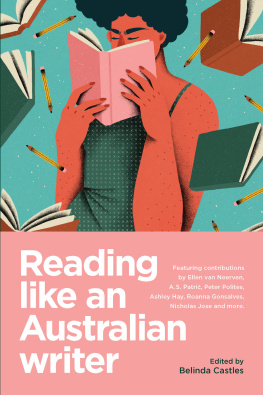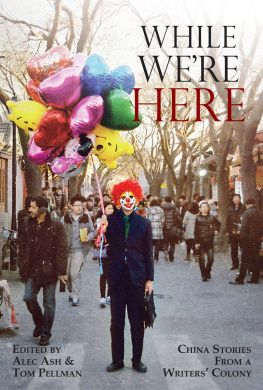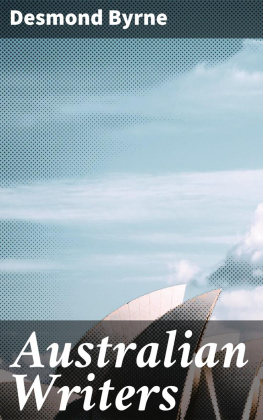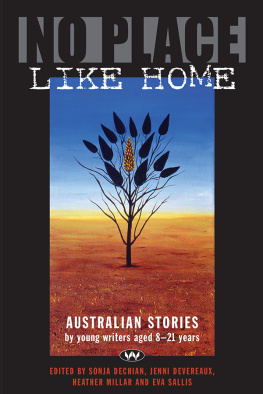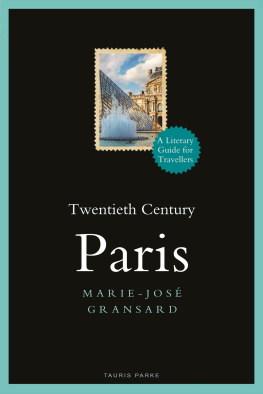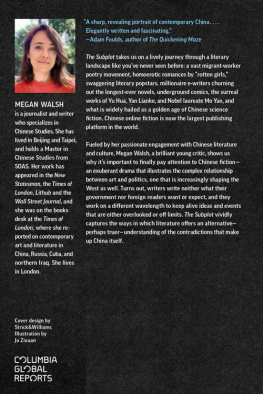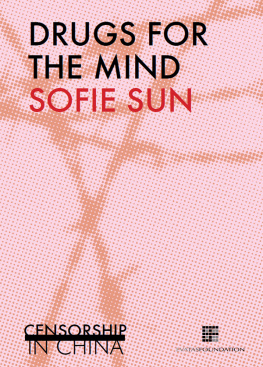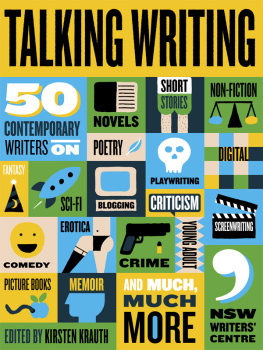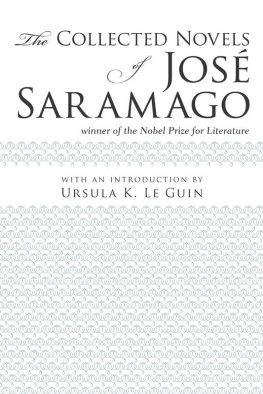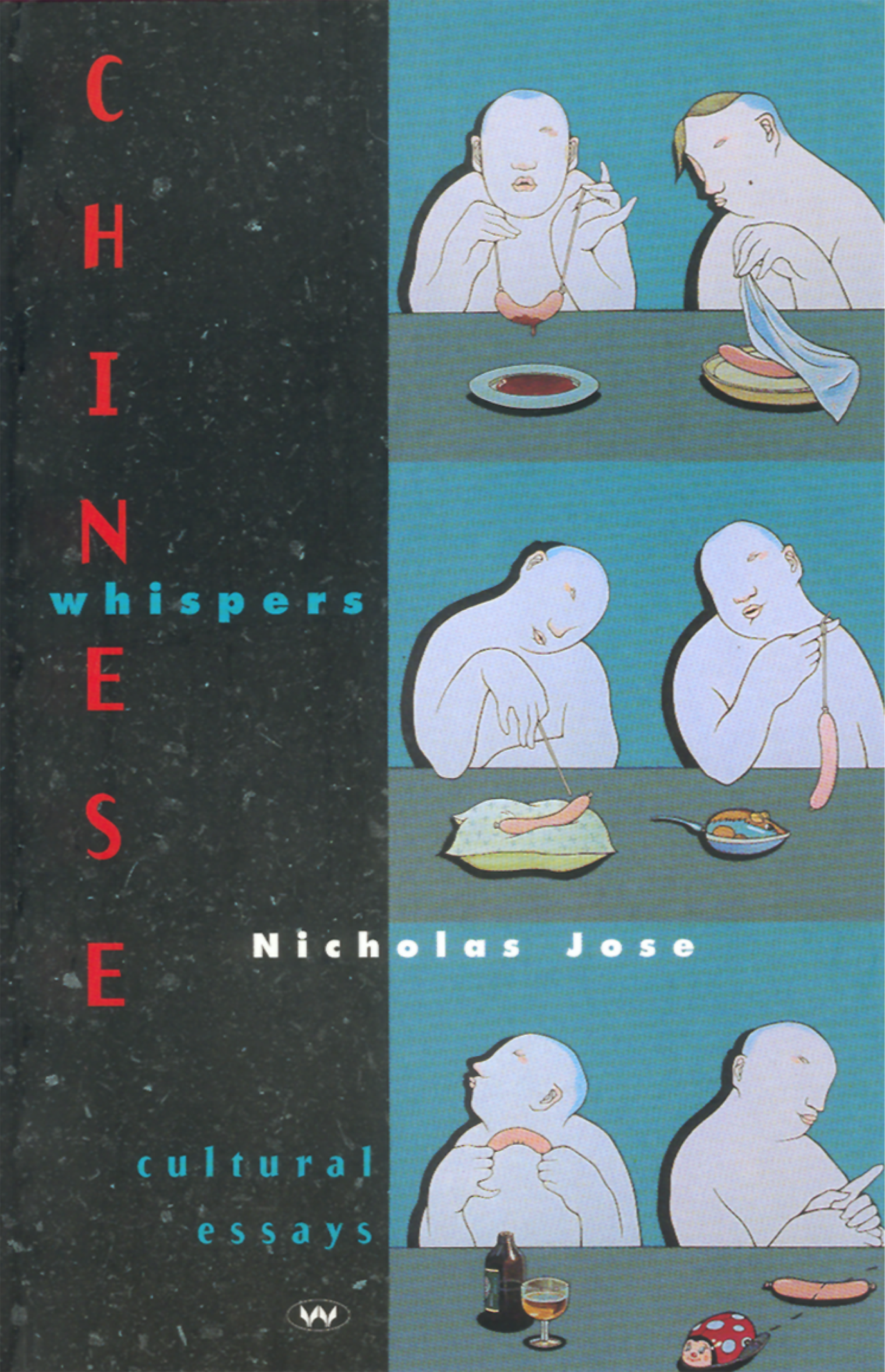
Wakefield Press

Nicholas Jose grew up in Adelaide. He was educated at the Australian National University and at Oxford. He has lived in England, Italy and China, where he taught Australian Studies and was cultural counsellor at the Australian embassy, Peking between 1987 and 1990. He is the author of two collections of short stories and four novels, including Avenue of Eternal Peace , which was adapted into a television mini-series, and The Rose Crossing .

Wakefield Press
1 The Parade West
Kent Town
South Australia 5067
www.wakefieldpress.com.au
First published 1995
Copyright Nicholas Jose, 1995
All rights reserved. This book is copyright. Apart from any fair dealing for the purposes of private study, research, criticism or review, as permitted under the Copyright Act, no part may be reproduced without written permission. Enquiries should be addressed to the publisher.
Edited by Michael Bollen and Elisabeth Klein
Cover and book designed by designBITE
National Library of Australia Cataloguing-in-Publication entry
Jose, Nicholas, 1952 .
Chinese whispers: cultural essays.
ISBN 978 1 74305 152 8 (ebook: epub).
1. Jose, Nicholas, 1952 Biography. 2. China Civilization 1976 . 3. China Intellectual life 1976 . 4. China Social life and customs 1976 . 5. AustraliaAsia relations. I. Title.
951.058
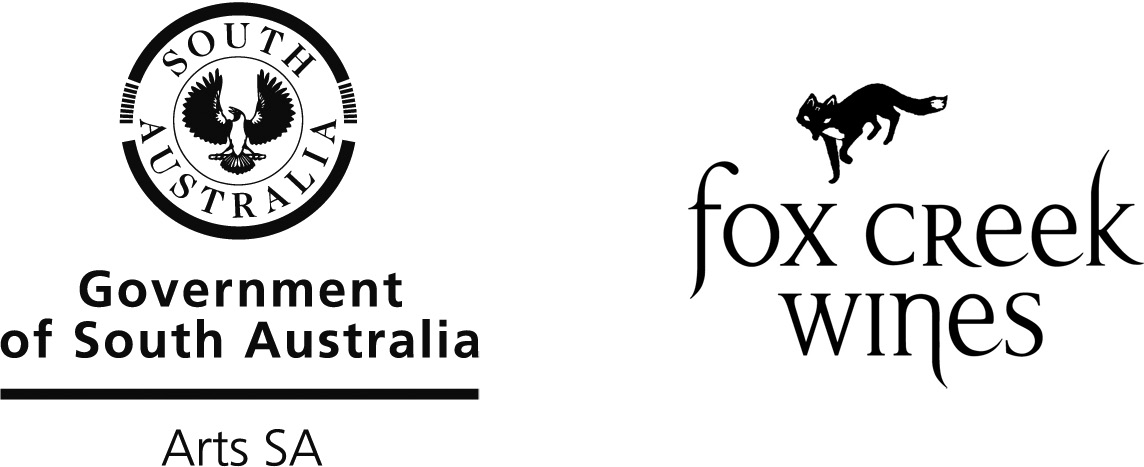
for Claire
who occasioned a lot of this,
with love
Authors note
For a small book, there are many people to thank, including the editors of the publications where some of the essays first appeared. Id like to thank Ah Xian and his family, Geremie Barm, Kathy Bail, Suzy Baldwin, Bruce Bennett, Michael Bollen, Stephanie Johnston and Elisabeth Klein, Ian Britain, Alison Broinowski, Peter Browne, Margaret Burke, Johnson Chang, Rosemary Creswell, Maryanne Dever, Susan Dewar, Tamsin Donaldson, Dinah Dysart, Guan Wei and Liu Pin, Paul Hetherington, Ivor Indyk, Ken Inglis, Linda Jaivin, Kate and Murray McLean, Humphrey McQueen, George Papaellinas, Cassandra Pybus, Claire Roberts, Sang Ye and Sue Trevaskes, Adam Shoemaker, Christina Slade, Max Suich, Ian Templeman, Neil Thompson, Wang Ziyin, Michael Xu and Neil Whitfield. Acknowledgements are due to The Age Monthly Review , Art & AsiaPacific , Asian Arts Society of Australia Review , Australian Quarterly , Australian Society , Independent Monthly , Island Magazine , Orientations , Republica , Southerly , 24 Hours , Voices , and Webbers ; to Rosemary Dobson, Randolph Stow and Fay Zwicky for permission to quote from their work; to Jacaranda Wiley for permission to quote from China... Woman by Oodgeroo; and to University of Queensland Press for permission to reprint Sang Ye: curio merchant.
Contents
Preface
Life-changing events are often a matter of chance. I never planned to get involved with China. It is an unexpected extension of my Australian cultural background and my training in English literature. The first step happened at Oxford twenty years ago. One night, sitting on the scrubby ornamental hill at New College, my friend, Alex Kerr, who had grown up in Japan and was studying Chinese and Tibetan on a Rhodes Scholarship, chastised my Eurocentrism and goaded me with the necessity of studying Chinese. I had already come to feel, being away, that the presence of Asia was a feature of Australian life I missed in Europe, although at that stage, in the 1970s, the Asian dimensions of Australia were not as clear as they are now.
Back in Canberra in 1979, I found a concentration of Asianists working in the academies and government who provided an incentive for me to take the next step and enrol in a course. I did not know how lucky I was to be with my remarkable teachers at the Canberra College of Advanced Education but all along the way people have been remarkable. It is the human interest that makes the journey. I began in a state of wonder, and I imagine that the wonder, complicated and deepened by many humbling questions and realisations, will be part of my relationship with China to the end. For that reason I hope Ill be forgiven the whimsy of starting this book with, not an essay, but a piece of fiction inspired by those first toddlers steps.
The facts and fictions of China, as Australians move to re-discover and nurture our Asian connections, provide a running theme through this book. Although largely rewritten for publication here, most of the essays arose in response to invitations to write or speak on particular occasions for mixed audiences, with a common interest in issues of Australias involvement with China or, more broadly, Asia, or in my own experience of China, as an Australian. Partly autobiographical then, partly critical and speculative, partly for the record, these pieces look at various aspects of contemporary Chinese culture, and Australias relationships with China, with a special interest in the personalities involved. I keep returning to Tiananmen Square 1989 as an epicentre. Five years later, the events of that time, their causes, consequences and implications, among many contending interpretations, continue to form the nexus for discussion of Chinas beyond-2000 confusions, as was re-confirmed for me on a return visit to Peking earlier this year.
Readers might wonder why I say Peking. Isnt it Beijing now? Bei means north, jing means capital. The city has been Chinas northern capital on and off for many centuries. Its Mandarin name, Beijing , was pronounced and heard differently by different people. It became naturalised as Peking in English, Pkin in French, Pechino in Italian and so on, as Mnchen became Munich and Roma Rome. When , a new system of transliterating the pronunciation of Chinese characters was adopted in China, Peking became Beijing. It is a change of spelling, not a change of name (unlike, say, the change from St Petersburg to Leningrad). For the Chinese it is still what it has always been, a city with an ancient name and long historical continuity. To catch this sense in English, I prefer the time-honoured name, Peking.
I went to China in 1986 for what I thought would be one year and ended up staying for five, teaching English Literature and Australian Studies at Peking Foreign Studies University in 1986 and at East China Normal University, Shanghai in 1987, then working as cultural counsellor at the Australian Embassy, Peking, from 1987 to 1990. I found myself involved in turbulent times of sometimes exhilarating, sometimes traumatic change. In 198687 I was writing the novel eventually published as . My working title was Searching for the Shaman, which indicates how I thought of what I was doing. As cultural counsellor, I saw my job as not only to facilitate cultural exchanges between China and Australia, but also to help Australians understand what was happening in China which meant trying to understand it myself.
What do we want with China? In a more Asia-oriented Australia, what do we want from Chinese culture? I ask these questions in genuine puzzlement. Returning to Australia from Peking in 1990, I discovered how pressing not to say fashionable the interest in Asia had become in government, business and the arts. It is too early to guess at the enduring consequences of this wave; but already the ground has shifted from the days, as late as the 1970s, when an interest in China was considered more or less eccentric.
Next page

